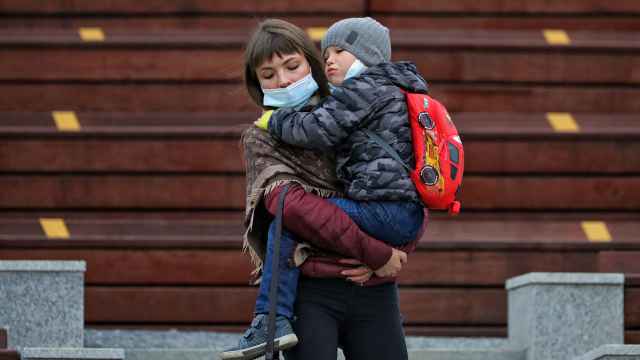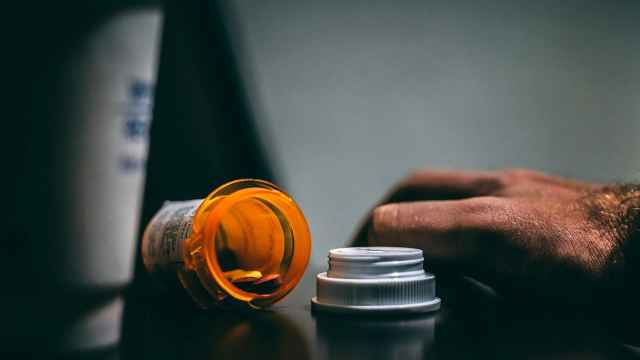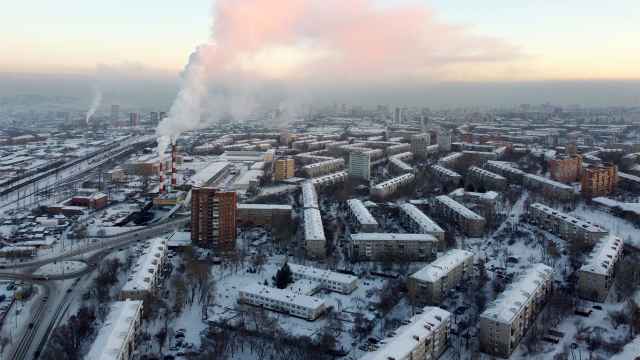Upon graduating from medical school, Russia’s aspiring medical specialists and surgeons are expected to complete a residency to gain specialized knowledge in their planned field of practice.
A new law passed by President Vladimir Putin this month means many of them will start their careers at small, resource-strapped hospitals in Russia’s regions upon finishing these residencies.
Critics warn that this will deter many young people from a career in medicine at a time when Russia’s healthcare industry is already under strain.
Backed by the ruling United Russia party and hailed by Health Minister Mikhail Murashko as a timely solution to the healthcare sector’s labor shortages, the law has been lambasted by opposition lawmakers and medical professionals who left over 1,000 negative reviews of the bill online.
The law mandates all medical graduates in state-funded residency programs to complete their work placements at hospitals and clinics covered by state health insurance. Students who accept a state-funded residency must sign an agreement with a specific medical facility where they will undergo training upon graduation.
For graduates outside Moscow and St. Petersburg, this can often mean signing up with facilities in small, rural locales.
“I am a young man at the beginning of my life and career. I don’t want to prematurely become an alcoholic living in some godforsaken village with no future,” a medical student enrolled in a state-funded surgical residency in the Siberian city of Tomsk told The Moscow Times.
If the medic or the hospital fails to fulfil the terms of this agreement, they would face a fine of three times the cost of tuition.
Forcing medical graduates to work at regional or rural hospitals without guarantees of a decent salary, housing and other forms of support would discourage young people from pursuing careers in medicine altogether, the law’s opponents argue.
They also warn it could give rise to a healthcare system staffed with an increasingly unmotivated workforce and the emergence of semi-legal private healthcare providers employing unaccredited doctors.
“I knew I would have to come back to my home region after finishing university, but with this law, I could be sent to work in a remote village. I am not thrilled about the prospect,” said the surgeon in training, who requested anonymity.

Under the new law, students entering or currently enrolled in state-funded residency programs will be required to work in a hospital or clinic for up to three years under the mentorship of an experienced colleague.
The mentorship program will be limited to a set list of medical fields that the Health Ministry will define.
While surgeons and oncologists are expected to remain in the mentorship program for the full three years, pharmacists and epidemiologists will be exempt from it altogether, according to the latest Health Ministry guidelines obtained by Kommersant business daily.
For graduates who choose to do their work placements in villages, small towns or the occupied Ukrainian territories, the length of a mentorship program will be half as long as for those working in Russia’s major urban centers, Kommersant reported.
These lenient measures outlined by Kommersant this week were likely adopted by the Health Ministry in response to the major pushback against the law.
“I’m doing my residency after graduating from medical college and working for three years as a paramedic. I don’t want to have mentors,” said a woman currently enrolled in a residency at Irkutsk Medical University.
The student recalled undertaking a summer mentorship program while studying at a medical college, when students were nominally placed under the supervision of a department head.
“In reality, we were overseen by a young doctor who herself had only been working at the hospital for about three months,” the student told The Moscow Times, asking to remain anonymous. “In the future, I’m thinking about possibly switching to pharmacology, but many of my classmates are already considering leaving medical school altogether.”

A medical student from Barnaul, the capital of southern Siberia’s Altai region, described the new legislative changes as “demotivating” and “unjust.”
“Mandatory work placements will not solve the problem of doctor shortages,” the student told The Moscow Times. “This will only create new problems like fatigue, burnout and attrition of medical employees. Improved work conditions, salaries and housing will attract doctors to work in the regions, not coercive measures.”
The law targeting medical students in state-funded residency programs is the latest in a series of policy reforms that aim to attract more people into the medical profession and deploy them to places suffering from acute staff shortages — the smaller towns and villages in regions further removed from Russia’s capital.
In 2012, Putin ordered to increase the median salaries of doctors to twice the average of the region in which they are employed by 2018.
The Health Ministry launched the Rural Doctor Program the same year, promising a one-time payment of up to 2 million rubles ($25,000) to doctors who commit to working in rural or remote settlements for at least five years.
In practice, “none of this has worked out the way the government planned,” said Judyth Twigg, a professor of political science at Virginia Commonwealth University and an expert on Russia’s health system.
More than a decade later, most of Russia’s regions still can’t meet the medical personnel salary bar set by Putin. For many doctors, the incentives offered by the Rural Doctor Program were not enough to make working at hospitals with dilapidated infrastructure and abandoning their connections to colleagues worth it.
The new law appears to be the latest temporary fix for a healthcare crisis that requires long-term strategic planning by Russian officials, Twigg said.
“It's not uncommon for public funding for training to carry with it an obligation to fulfil some kind of mandatory state service. That happens in different places around the world…But here, [the Russian government] is trying to talk people into going into the medical profession to begin with and struggling with that,” Twigg told The Moscow Times.
This has been compounded by the full-scale war in Ukraine and the Western sanctions that it precipitated.
“Being a doctor is so much harder when sanctions have made it so much more difficult to get the basic pharmaceuticals, instrumentation and materials that you need to treat your patients effectively,” Twigg said.
Yet like many ripple effects of the war, Russia’s regions and ethnic republics are expected to bear the brunt of the new law for medics.
“It is not an issue for people here or in Moscow,” a radiologist from St. Petersburg told The Moscow Times when asked about the consequences for him and his colleagues.
A medical student from St. Petersburg also expressed uncertainty when asked about the possible negative consequences of the law.
“People will be searching for ways to turn this into an advantage. They will find loopholes,” he told The Moscow Times.
“Staff shortages are an eternal problem in medicine,” he said. “There will always be too few medical workers. Only if we are paid millions, then things might actually change.”
A Message from The Moscow Times:
Dear readers,
We are facing unprecedented challenges. Russia's Prosecutor General's Office has designated The Moscow Times as an "undesirable" organization, criminalizing our work and putting our staff at risk of prosecution. This follows our earlier unjust labeling as a "foreign agent."
These actions are direct attempts to silence independent journalism in Russia. The authorities claim our work "discredits the decisions of the Russian leadership." We see things differently: we strive to provide accurate, unbiased reporting on Russia.
We, the journalists of The Moscow Times, refuse to be silenced. But to continue our work, we need your help.
Your support, no matter how small, makes a world of difference. If you can, please support us monthly starting from just $2. It's quick to set up, and every contribution makes a significant impact.
By supporting The Moscow Times, you're defending open, independent journalism in the face of repression. Thank you for standing with us.
Remind me later.







